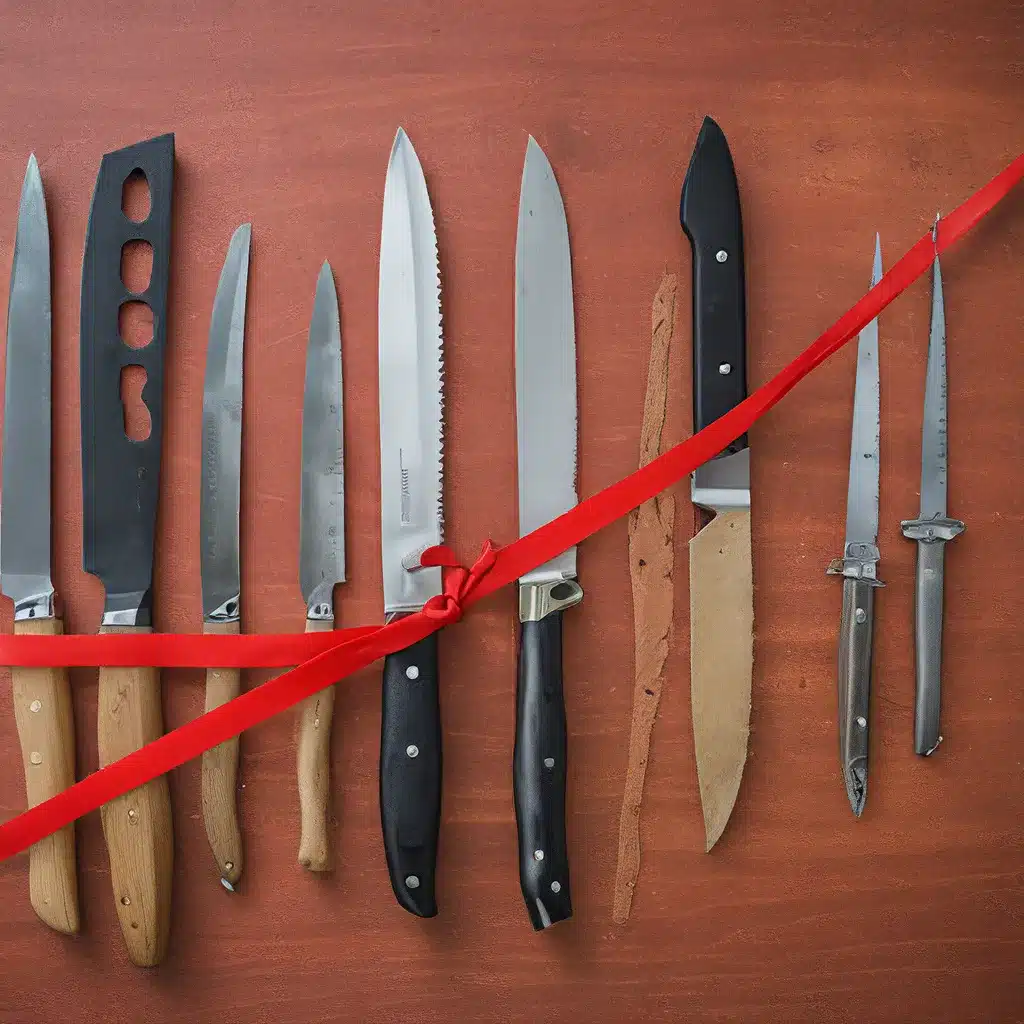
Cutting Through the Red Tape: Navigating Knife Regulations for Small Businesses
Unsheathing the Complexity: Navigating Knife Regulations for Small Businesses
As a small business owner in the knife industry, I know firsthand the unique challenges that come with navigating the intricate web of regulations. It’s like trying to slice through a knot of red tape, where one wrong move can lead to a legal quagmire. But fear not, my fellow blade-wielding entrepreneurs – I’m here to share my hard-earned insights and guide you through this treacherous landscape.
Let’s start by acknowledging the obvious: the knife business is no walk in the park. We’re dealing with tools that can be both incredibly useful and potentially dangerous, and that duality has given rise to a complex regulatory environment. But as the old saying goes, “Knowledge is power,” and that’s precisely what we’re going to arm ourselves with today.
One of the first things I learned when I started my knife business is that different jurisdictions can have wildly different rules and restrictions. What might be perfectly legal in one state could land you in hot water in another. It’s like navigating a maze, where each turn could lead you to a dead end or a hidden treasure. That’s why it’s crucial to stay up-to-date on the latest regulations in the areas where you operate.
Herman Knives, for example, has had to adapt its product offerings and sales strategies to comply with local laws. Sometimes, it’s as simple as ensuring certain blade lengths or materials are within the legal limits. Other times, it might mean getting specialized permits or licenses just to sell your wares.
But the challenges don’t stop there. As a small business, we often have to contend with being overshadowed by larger players in the industry. It’s like trying to carve out a niche in a forest of corporate giants. The bureaucratic hoops we have to jump through can feel endless, from navigating complex import/export regulations to securing the right insurance policies.
“I remember one time, I spent weeks trying to get the right paperwork in order to ship a custom-made knife across state lines,” recalled my old friend, Pete, who owns a small knife shop. “It was like a never-ending game of red tape roulette. I swear, I almost gave up and just started making balloon animals instead.”
I can’t say I blame him. The sheer amount of paperwork, permits, and licensing requirements can be enough to make even the most seasoned entrepreneur want to throw in the towel. But that’s where our entrepreneurial spirit and determination come in. We may be small, but we’re mighty, and we’re not going to let a few bureaucratic hurdles stand in our way.
One of the key things I’ve learned is the importance of networking and collaboration. By connecting with other small business owners in the knife industry, we can share best practices, swap war stories, and even team up to tackle regulatory challenges together. It’s like having a secret weapon in our arsenal – a support system that can help us navigate the murky waters of compliance.
And let’s not forget the power of advocacy. As small businesses, we have a unique opportunity to make our voices heard and push for changes that benefit our industry. Whether it’s lobbying for more reasonable regulations or highlighting the economic impact of our businesses, we can’t be afraid to stand up and fight for what we believe in.
Of course, all of this is easier said than done. Navigating the legal landscape of the knife industry can be a daunting task, and it’s easy to get bogged down in the details. But that’s where my advice comes in: take it one step at a time. Break down the challenges, prioritize the most pressing issues, and tackle them one by one.
Remember, we’re not alone in this fight. There are countless other small business owners out there who are facing similar challenges. By sharing our stories, learning from each other, and working together, we can overcome the obstacles and thrive in this dynamic industry.
So, my fellow knife enthusiasts, let’s sharpen our focus, hone our skills, and cut through the red tape once and for all. With a little determination, a whole lot of grit, and a healthy dose of creativity, we can carve out a successful future for our small businesses. After all, what’s a little bureaucratic hurdle when you’ve got the right tools and the will to succeed?


